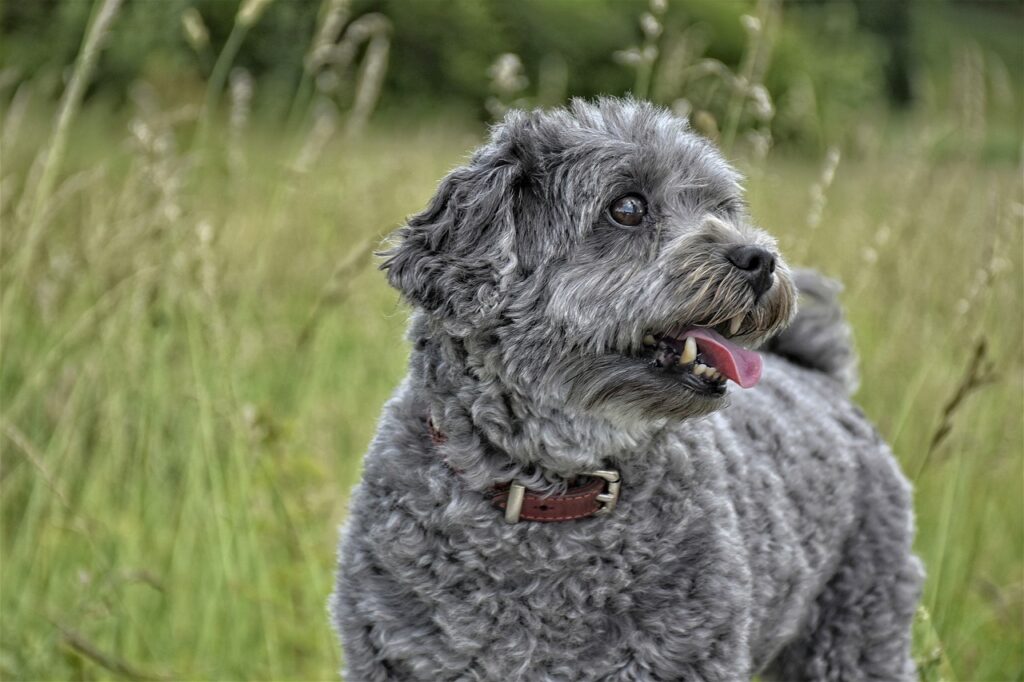Can Dogs Eat Boba? – No, They Can’t
No, dogs should not eat boba, also known as bubble tea pearls. Boba is a popular treat for humans, often enjoyed in a sweet, milky tea, but it’s not a safe choice for our canine companions. These chewy tapioca pearls can be a choking hazard and are hard to digest for dogs. Moreover, the sweeteners and milk in bubble tea can cause digestive upset and potentially lead to more serious health issues such as obesity and diabetes.
Can Puppies Eat Boba?
No, puppies should definitely not eat boba. Puppies have even more sensitive digestive systems than adult dogs and are at a higher risk of choking on small, chewy objects. Ingesting boba can lead to symptoms like abdominal pain and blockages, which are particularly harmful to their developing bodies.
Why is Boba Harmful for Dogs?
There are several reasons why boba can be harmful to dogs, which revolve around its composition and the way dogs digest food.
Choking Hazard
Boba pearls can easily become lodged in a dog’s throat due to their size and chewy texture. This can lead to choking, which is an immediate medical emergency.
Digestive Issues
The primary ingredient in boba, tapioca, is difficult for dogs to digest. Consuming boba can cause indigestion, diarrhea, or even a more severe gastrointestinal blockage.
Sugar Content
The high sugar content in bubble tea can lead to dental problems, obesity, and diabetes in dogs. Sugar is not an essential part of a dog’s diet and should be avoided to maintain their overall health.
Symptoms to Watch Out For After Dogs Consume Boba
- Choking: If your dog is struggling to breathe or pawing at their mouth, they may be choking on boba pearls.
- Vomiting or Gagging: These are signs that your dog’s body is trying to expel something that it can’t digest.
- Lethargy or Discomfort: If your dog is acting unusually quiet or uncomfortable after consuming boba, it could indicate a digestive issue.
Immediate Steps to Take if Your Dog Eats Boba
- Assess the Situation: Check whether the dog is breathing and if there’s an obstruction in their throat that you can safely remove.
- Contact Your Vet: Whether you find an obstruction or not, contacting your vet immediately is crucial for your dog’s safety.
- Prevent Further Access: Ensure that boba and similar foods are kept out of reach to avoid future incidents.
Safe Alternatives to Boba
While boba is dangerous for dogs, there are safe alternatives that they can enjoy. Consider offering your dog these safer food options instead:
- Carrots – They are crunchy and beneficial for your dog’s teeth.
- Apples – A sweet, healthy treat in moderation, without the seeds.
- Blueberries – Nutritious and low in calories, they are perfect for your furry friend.
Conclusion
Though boba may be tempting to share with your pet due to its popularity among humans, it is important to recognize the risks it poses to dogs. The choking hazard, digestive issues from tapioca, and the sugary content are all reasons to avoid giving boba to dogs. Caring for your pet means being vigilant about their diet and offering them safe alternatives that provide nutritional value without the risks.
Frequently Asked Questions
What should I do if my dog accidentally eats boba?
Immediately check for choking and contact your veterinarian for further advice, especially if they show any signs of distress.
Are there any benefits to giving dogs boba?
No, there are no nutritional benefits in boba for dogs, and it poses significant health risks.
Can dogs eat tapioca pearls if unsweetened?
Even unsweetened tapioca pearls can be a choking hazard and difficult for dogs to digest, so it’s best to avoid them.
Is boba tea liquid safe for dogs?
Boba tea liquid often contains milk and sugar, which are not recommended for dogs, so it should be avoided.



